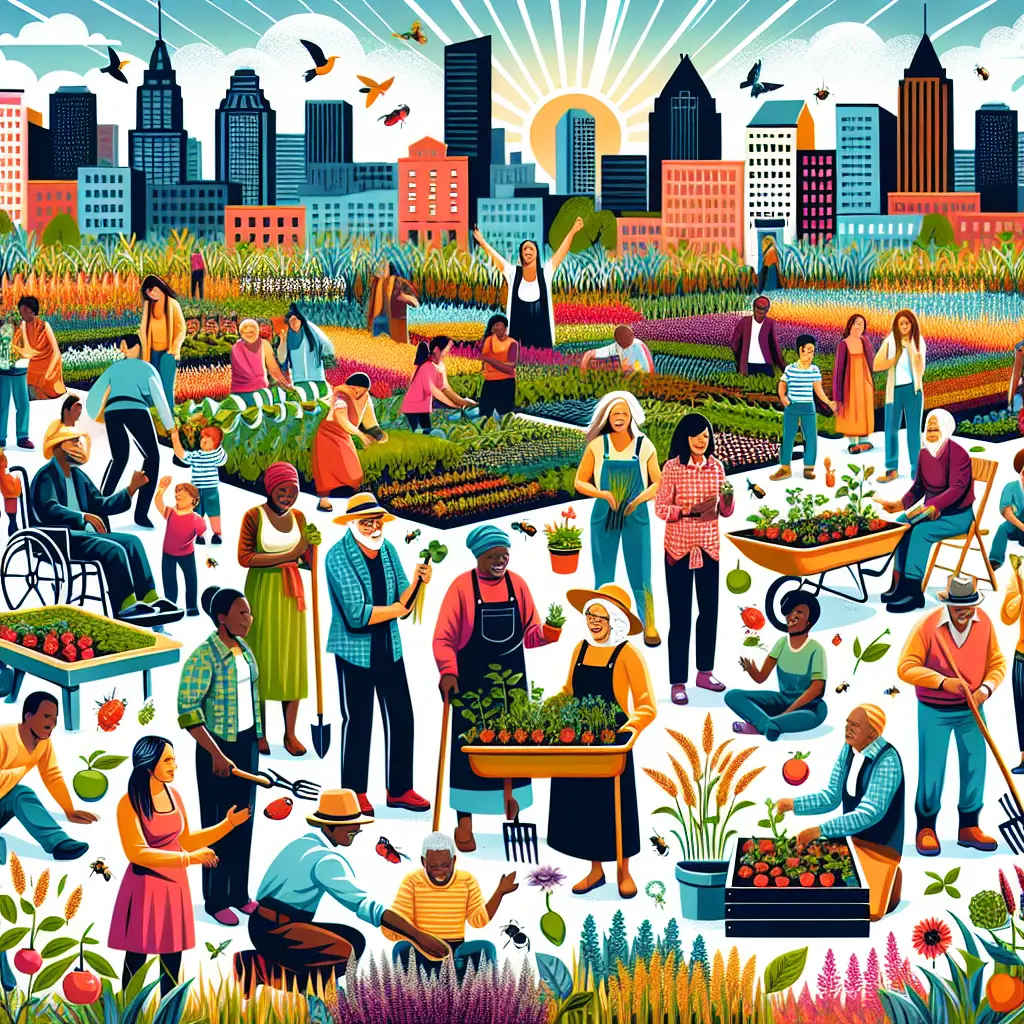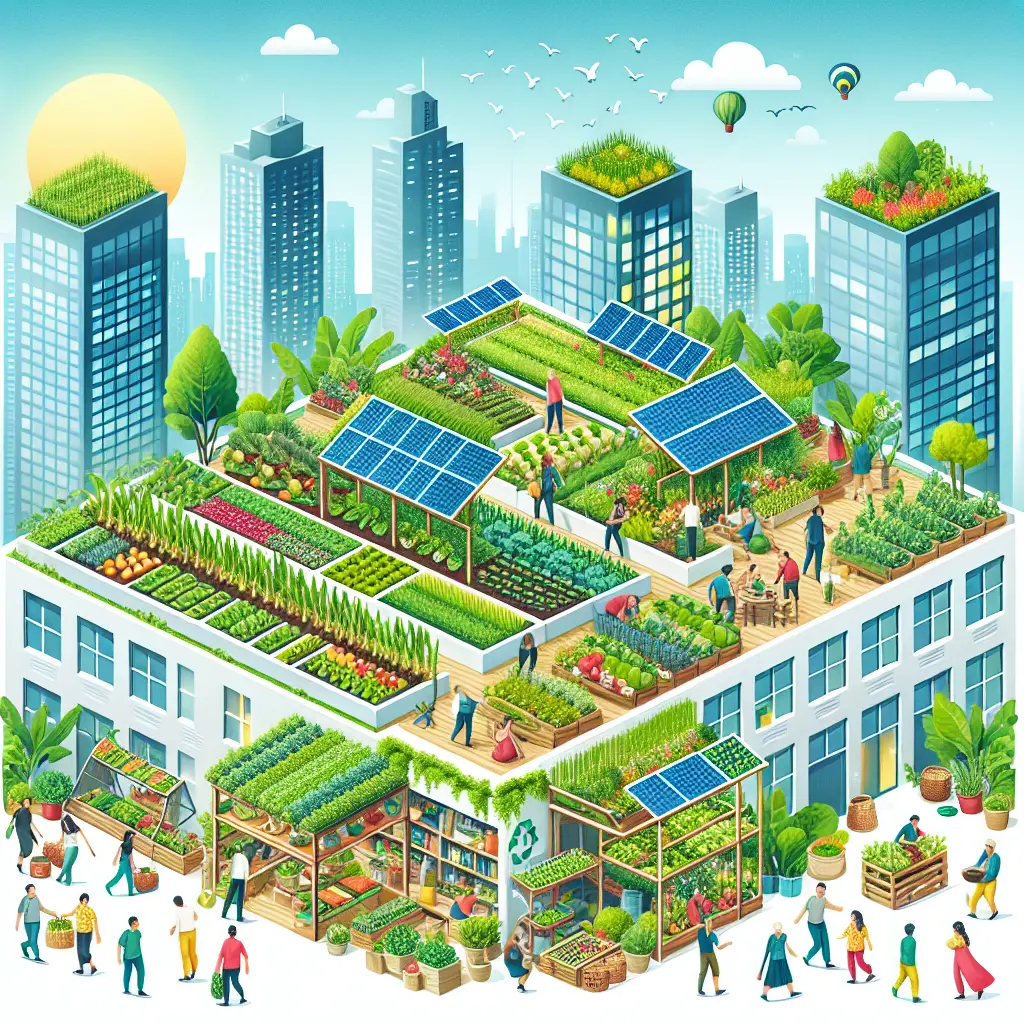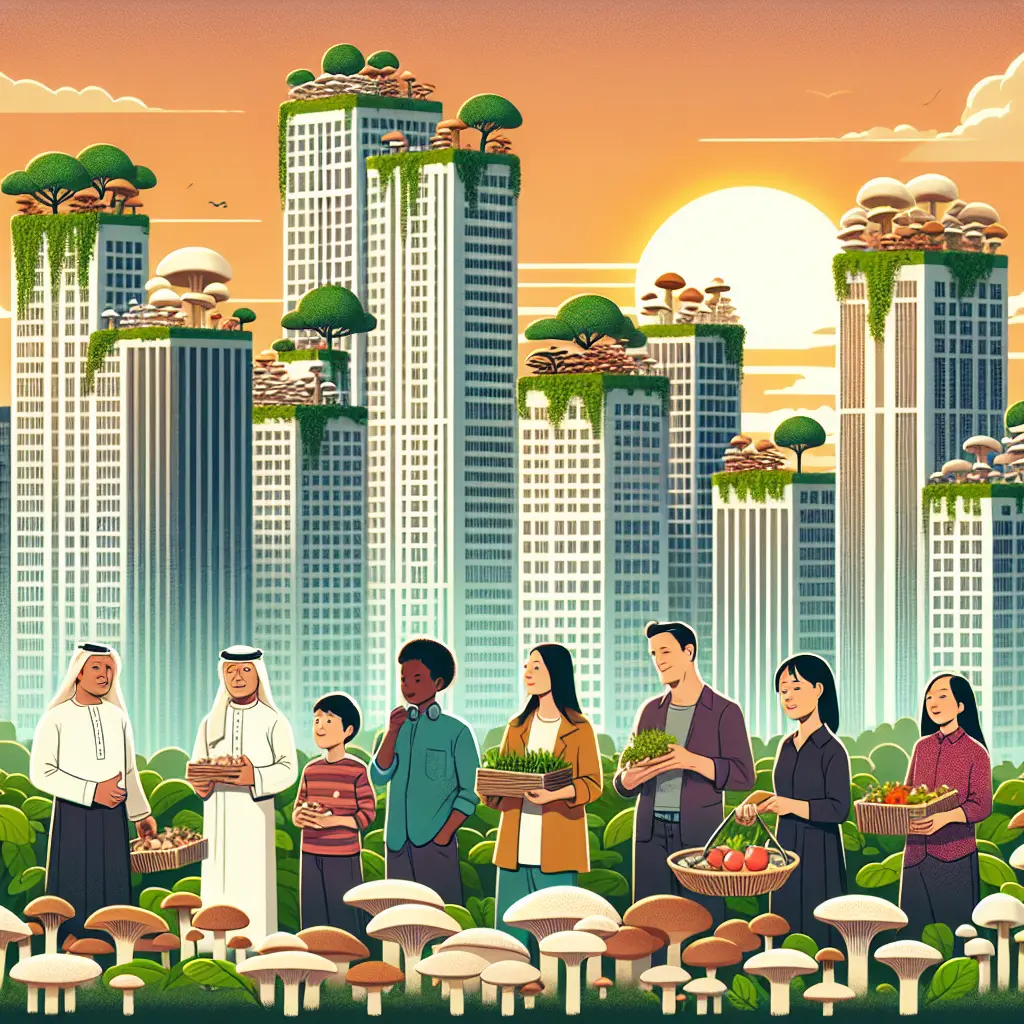In the heart of bustling cities, urban farming emerges as a beacon of sustainability and resilience, offering numerous benefits for community wellbeing. As urban areas continue to expand, the need for innovative solutions like urban agriculture becomes imperative—not just for sustainable living but for fostering a sense of community. Urban farming is about more than just growing food; it's about cultivating healthier lifestyles and stronger communities.
In an era where urban landscapes are rapidly evolving, urban farming plays a pivotal role in enhancing community wellbeing. With city populations swelling, innovative solutions like urban agriculture are essential for fostering sustainable living and building resilient communities. This section explores how urban farming initiatives are enhancing community wellbeing.
Enhancing Food Security and Nutrition
Community gardens are transforming vacant city lots into flourishing green spaces, playing a crucial role in enhancing food security by supporting local food production. These initiatives offer residents access to fresh produce, crucial in times of global agricultural challenges like prolonged droughts in Morocco read more. Urban farming mitigates such vulnerabilities by providing a steady supply of nutritious food, reducing reliance on traditional systems.
Furthermore, urban farming extends its benefits beyond physical health to mental health improvements. Gardening activities are shown to reduce stress and anxiety, promoting overall wellbeing explore further. By creating green spaces in cities, urban agriculture fosters environments conducive to both physical activity and mental relaxation.
Promoting Environmental Sustainability
Urban farming significantly impacts the environment by reducing urban heat, promoting biodiversity, and improving air quality. As cities become heat islands, green spaces act as natural coolants, reducing the need for energy-intensive air conditioning learn more. Urban farms also support local flora and fauna, enhancing city biodiversity.
Innovative research from the University of Maryland suggests that manure and compost can improve soil health and potentially reduce antibiotic resistance discover more. This highlights the role of urban farming in restoring soil health and contributing to environmental sustainability.
Fostering Community Engagement and Social Ties
The social benefits of urban agriculture extend beyond food production; they foster community engagement and strengthen social bonds. Community gardens serve as hubs where individuals come together to share knowledge and support one another, enhancing community cohesion. These interactions bolster local economies by encouraging cooperative initiatives.
Urban farming presents a harmonious alternative to divisions over modern developments find out more, promoting food sovereignty and urban sustainability.
Urban Farming Education: Raising Awareness
Urban farming education is critical in raising awareness about the benefits of urban agriculture. Educational programs inspire city dwellers to engage in urban farming activities, promoting sustainable living practices. Workshops on backyard and urban farming have gained popularity since the 2020 lockdowns get started.
These educational efforts empower individuals with skills needed for local food production and foster a deeper understanding of their environmental and social impacts. By educating communities about reducing urban heat and enhancing biodiversity, urban farming initiatives contribute significantly to sustainability.
Innovations and Future Prospects
Urban farming continues to evolve with technological advancements, presenting exciting prospects for the future. Vertical farming, for instance, allows cultivation in controlled environments, showing significant potential for space-constrained urban areas read more.
Innovations like producing "food out of thin air" through scalable proteins from fermented bacteria offer revolutionary possibilities for sustainable food production explore further. These highlight how urban agriculture adapts to meet growing demands while maintaining ecological balance.
Building Resilient Urban Communities
Urban farming efforts contribute not only to individual health but also to the collective prosperity of cities. Lessons from ancient civilizations affected by climate change learn from history emphasize resilient agricultural practices' importance for long-term sustainability.
By integrating sustainable practices into daily life, urban farming paves the way for resilient futures. Through its multifaceted benefits—ranging from health improvements to community engagement—urban agriculture stands as a beacon of hope for modern urban living.
Conclusion: Embracing Urban Farming for a Sustainable Future
Urban farming is a transformative force enhancing community wellbeing and paving the way for sustainable futures. By turning vacant lots into vibrant community gardens, it bolsters food security and nutrition while promoting mental and physical health. These green spaces offer stress-reducing activities and foster stronger social ties, creating community cohesion.
The environmental benefits of urban farming are equally compelling. From reducing urban heat to restoring soil health with innovative techniques, urban farms are integral to ecological balance within cityscapes. As cities grow, these sustainability efforts are crucial.
Community engagement remains a pillar of urban farming, turning agricultural initiatives into communal hubs that strengthen social bonds. By engaging residents in sustainable practices, cities nurture food sovereignty and promote urban sustainability.







Leave a Comment